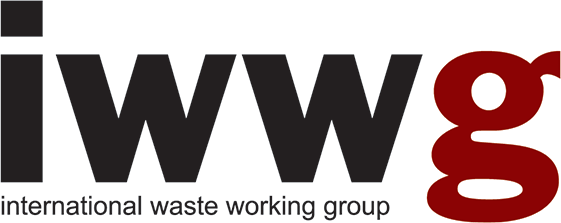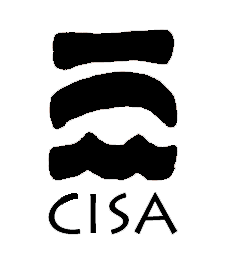THE NORMALITY OF INDUSTRIAL AND COMMERCIAL WASTE: ECONOMIC, TECHNICAL AND ORGANISATIONAL BARRIERS TO WASTE PREVENTION
- Available online in Detritus - Volume 13 - December 2020
- Pages 3-11
Released under CC BY-NC-ND
Copyright: © 2020 CISA Publisher
Abstract
This study shows that the production of industrial and commercial waste should form part of normal organisational practices. When asked about waste prevention, representatives of food, textile, electronics and construction companies in Sweden have difficulties highlighting concrete waste-prevention objectives, measures and outcomes. Instead, they highlight economic, technical, and organisational barriers that prevent them from engaging in waste prevention, thereby endowing the production of waste with an economic, technical and organisational rationality. This triple rationalisation of waste production amounts to the managerial normalisation of waste that obstructs the implementation of waste prevention policies. Thus, we suggest that these policies aim to de-normalise industrial and commercial waste in similar ways to the measures used to de-normalise household waste.Keywords
Editorial History
- Received: 04 May 2020
- Revised: 14 Sep 2020
- Accepted: 30 Sep 2020
- Available online: 28 Dec 2020
References
Aid, G., Eklund, M., Anderberg, S., Baas, L. (2017). Expanding roles for the Swedish waste management sector in inter-organizational resource management. Resources, Conservation and Recycling, 124 (Supplement C), 85–97.
DOI 10.1016/j.resconrec.2017.04.007
Bartl, A., 2014. Moving from recycling to waste prevention: A review of barriers and enables. Waste Management & Research, 32 (9 suppl), 3–18.
DOI 10.1177/0734242X14541986
Cainelli, G., D’Amato, A., Mazzanti, M., 2020. Resource efficient eco-innovations for a circular economy: Evidence from EU firms. Research Policy, 49, 103–827.
DOI 10.1016/j.respol.2019.103827
Corsini, F., Gusmerotti, N. M., Testa, F., Iraldo, F., 2018. Exploring waste prevention behaviour through empirical research. Waste Management, 79, 132–141.
DOI 10.1016/j.wasman.2018.07.037
Corvellec, H., 2016. A performative definition of waste prevention. Waste Management, 52, 3–13.
DOI 10.1016/j.wasman.2016.03.051
Corvellec, H., Babri, M., Stål, M., Forthcoming. Putting circular ambitions into action: The case of Accus, a small Swedish sign company. In M. Brandão, D. Lazarevic & G. Finnveden (eds.), Handbook of the circular economy, pp: n.a., Cheltenham: Edward Elgar. ISBN: n.a
Corvellec, H., Czarniawska, B., 2015. Action nets for waste prevention. In Waste management and sustainable consumption: Reflection on consumer waste. In K.M., Ekström (ed.), pp: 88–101. Oxford: Earthscan-Routledge
Corvellec, H., Zapata Campos, MJ., Zapata, P., 2013. Infrastructures, Lock -in, and Sustainable Urban Development – The Case of Waste Incineration in the Göteborg Metropolitan Area. Journal of Cleaner Production, 1(50), 32–39.
DOI 10.1016/j.jclepro.2012.12.009
de Jong, P., Wolsink, M., 1997. The structure of the Dutch waste sector and impediments for waste reduction. Waste Management & Research 15(6): 641–658.
DOI 10.1177/0734242X9701500608
Ellen MacArthur Foundation, 2017. Concept. Cowes: Ellen MacArthur Foundation. https://www.ellenmacarthurfoundation.org/circular-economy/overview/concept (Access date : 4 May, 2020)
European Commission, 75/442/EEC. Waste directive. Official Journal of the European Union, 194
European Commission, 1977. 2nd Environmental Action Programme 1977–1981. Official Journal of the European Union - C, 139 (13.6.77)
European Parliament, 2018. Circular economy: More recycling of household waste, less landfilling Brussels: European Parliament
Fuentes, C., Bäckström, K., Svingstedt, A., 2017. Smartphones and the reconfiguration of retailscapes: Stores, shopping, and digitalization. Journal of Retailing and Consumer Services, 39, 270–278.
DOI 10.1016/j.jretconser.2017.08.006
Fuentes, C., Svingstedt, A., 2017. Mobile phones and the practice of shopping: a study of how young adults use smartphones to shop. Journal of Retailing and Consumer Services, 38, 137–146.
DOI 10.1016/j.jretconser.2017.06.002
Gregson, N., M. Crang, J. Laws, T. Fleetwood, H. Holmes., 2013. Moving up the waste hierarchy: Car boot sales, reuse exchange and the challenges of consumer culture to waste prevention. Resources, Conservation and Recycling, 77(0), 97–107.
DOI 10.1016/j.resconrec.2013.06.005
Hand, M., Shove, E., Southerton, D., 2005. Explaining showering: A discussion of the material, conventional, and temporal dimension. Sociological Research Online, 10(2).
DOI 10.5153/sro.1100
Holsteain, J.A., Gubrium J.F., 1995. The active interview. London: Sage. ISBN: 0-8039-5895-1
Hutner, P., Thorenz, A., Tuma, A. (2017). Waste prevention in communities: A comprehensive survey analyzing status quo, potentials, barriers and measures. Journal of Cleaner Production, 141, 837–851.
DOI 10.1016/j.jclepro.2016.09.156
Johansson, N., Corvellec, H., 2018. Waste policies gone soft: An analysis of European and Swedish waste prevention plans. Waste Management, 77, 322–332.
DOI 10.1016/j.wasman.2018.04.015
Kerdlap, P., Low, J.S.C., Ramakrishna, S. (2019). Zero waste manufacturing: A framework and review of technology, research, and implementation barriers for enabling a circular economy transition in Singapore. Resources, Conservation and Recycling, 151, 104438.
DOI 10.1016/j.resconrec.2019.104438
Matsuda, T., Hirai, Y., Asari, M., Yano, J., Miura, T., Ii, R., Sakai, S.-I., (2018). Monitoring environmental burden reduction from household waste prevention. Waste Management, 71, 2–9.
DOI 10.1016/j.wasman.2017.10.014
Naturvårdsverket, 2015. Tillsammans vinner vi på ett giftfritt och resurseffektivt samhälle: Sveriges program för att förebygga avfall 2014–2017, Stockholm: Naturvårdsverket
Naturvårdsverket, 2018. Att göra mer med mindre: Sveriges avfallsplan och avfallsförebyggande program 2018–2023 (Rapport 6857). Stockholm: Naturvårdsverket
O’Brien, M. (2008). A crisis of waste?: Understanding the rubbish society. New York: Routledge. ISBN: 978-0-415-96098-4
Reckwitz, A., 2002. Toward a theory of social practices: A development in culturalist theory. European Journal of Social Theory, 5(2), 243–263.
DOI 10.1177/13684310222225432
Schatzki, T. R., 2001. Introduction: Practice theory. In T. R. Schatzki, K. Knorr-Cetina, & E. v. Savigny (ed.), The practice turn in contemporary theory, pp: 1–14. London: Routledge. ISBN: 0-415-22814-X
Setti, M., Banchelli, F., Falasconi, L., Segrè, A., Vittuari, M., 2018. Consumers’ food cycle and household waste. When behaviors matter. Journal of Cleaner Production, 185, 694–706.
DOI 10.1016/j.jclepro.2018.03.024
Shahbazi, S., Wiktorsson, M., Kurdve, M., Jönsson, C., & Bjelkemyr, M. (2016). Material efficiency in manufacturing: Swedish evidence on potential, barriers and strategies. Journal of Cleaner Production, 127, 438–450.
DOI 10.1016/j.jclepro.2016.03.143
Shove, E., Pantzar, M., 2005. Consumers, producers and practices: Understanding the invention and reinvention of Nordic walking. Journal of Consumer Culture, 5(1), 43–64.
DOI 10.1177/1469540505049846
Shove, E., Pantzar, M., Watson, M., 2012. The dynamics of social practice: Everyday life and how it changes. London: Sage. ISBN: 978-0-85702-043-7
Shove, E., Watson, M., Hand, M., Ingram, J., 2007. The design of everyday life. Oxford: Berg. ISBN: 1-84520-682-7
Silva, A., Rosano, M., Stocker, L., Gorissen, L., 2017. From waste to sustainable materials management: Three case studies of the transition journey. Waste Management, 61(Supplement C), 547–557.
DOI 10.1016/j.wasman.2016.11.038
Silverman, D. 2004., Qualitative research: Issues of theory, method and practice. Second edition. London: SAGE. ISBN: 0-7619-4934-8
Svingstedt, A. 2012. Servicemötets praktik: På en tingsrätt, ett äldreboende och ett hotell. Lund: Lunds universitet, Institutionen för Service Management. ISBN: 978-91-7473-378-5
Svingstedt, A., Corvellec, H. 2018., When lock-ins impede value co-creation in services. International Journal of Quality and Service Sciences, 10(1), 2–15.
DOI 10.1108/IJQSS-10-2016-0072
Swedish Environmental Protection Agency (2012) From waste management to resource efficiency: Sweden’s waste plan 2012–2017. Stockholm: Naturvårdsverket
The European Week for Waste Reduction, 2019. The project, http://www.ewwr.eu/en/project/main-features (Retrieved 2019-11-01)
von Kameke, C., Fischer, D., 2018. Preventing household food waste via nudging: An exploration of consumer perceptions. Journal of Cleaner Production, 184, 32–40.
DOI 10.1016/j.jclepro.2018.02.131
Wilts, H., Dehoust, G., Jepsen, D., Knappe, F. (2013). Eco-innovations for waste prevention: Best practices, drivers and barriers. Science of the Total Environment, 461–462(0), 823–829.
DOI 10.1016/j.scitotenv.2013.05.096
Zacho, K.O., Mosgaard M.A., 2016. Understanding the role of waste prevention in local waste management: A literature review. Waste Management & Research, 34(10), 980–994.
DOI 10.1177/0734242X16652958
Zapata Campos, M. J., Zapata, P., 2017. Infiltrating citizen-driven initiatives for sustainability. Environmental Politics, 26(6), 1055–1078.
DOI 10.1080/09644016.2017.1352592




